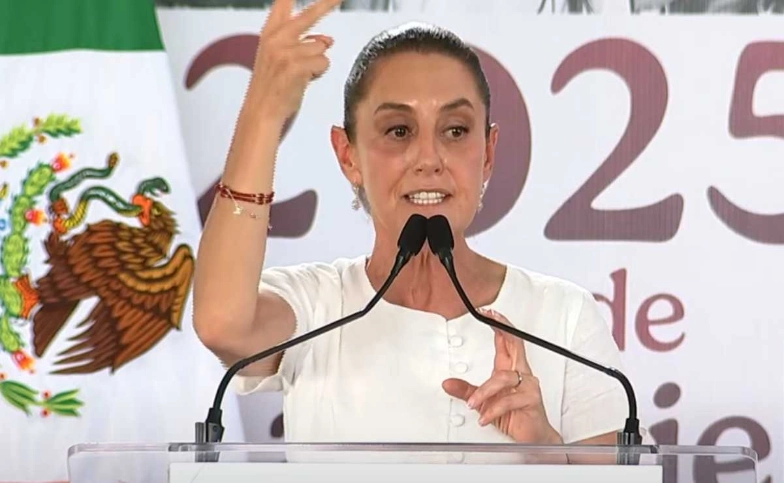Mexican President Claudia Sheinbaum has strongly criticized the controversial “Beautiful Big Bill” proposed by U.S. President Donald Trump, which suggests imposing a 3.5% tax on remittances sent back home by immigrants. She called the bill unjust and asserted that Mexico would unite in fierce opposition.
Although the tax was adjusted from the initial 15%, the 3.5% remittance tax remains a focal point of tension between the two countries. President Sheinbaum warned that this policy could severely harm Mexican workers in the U.S. and condemned it as a move to cut off financial support for struggling families in Mexico. She emphasized that Mexican officials are on high alert, ready to address the challenges that the bill may pose.

In May, Sheinbaum expressed her strong opposition:
“Mexican compatriots in the U.S. work tirelessly to make ends meet. We will not accept this type of tax harming their remittances—the lifeline for the poor.”
She called on the Mexican people to send letters and emails to the U.S. Senate to express their views, affirming that Mexico would mobilize all necessary resources to protect its citizens’ rights. Additionally, she revealed a counterplan: the “Finabien” bill, aimed at reducing transfer fees in the future as an alternative solution.
Related: More than Half of American Businesses Are Adopting Blockchain
Tensions escalated further when Missouri Senator Eric Schmitt dismissed Mexico’s concerns and proposed a harsher version of the bill. In a social media post, he stated:
“I propose increasing the remittance tax fourfold, from 3.5% to 15%. The U.S. is not the treasury for the world, and we will not accept any threats.”
Schmitt emphasized that the U.S. is not Mexico’s “shopping center” and committed to advancing this legislation.
Amid growing concerns, cryptocurrency is emerging as a potential solution for Mexicans facing the new remittance tax. Experts suggest that decentralized cryptocurrency wallets make it difficult for the U.S. government to track or tax cross-border transactions. Many analysts view cryptocurrency as a “lifeline” for Mexican immigrants, providing a decentralized means of remittance to overcome future financial barriers.







